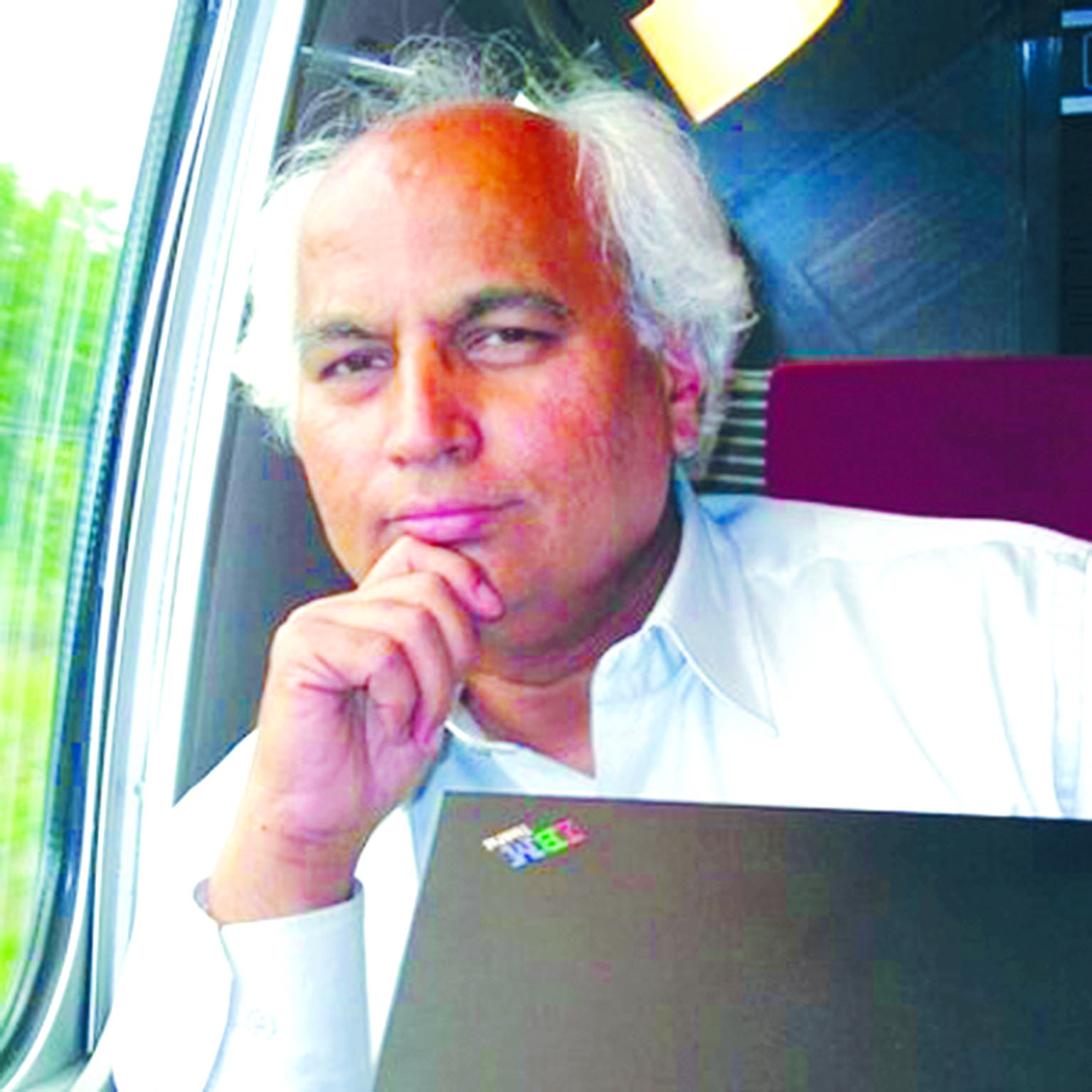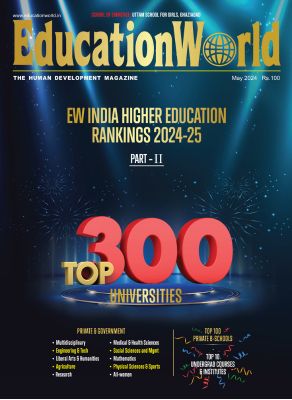
Sudheendra Kulkarni
Indulging in corrupt practices in China has become highly risky. The anti-corruption drive launched by Xi Jinping be it in the education sector, military or the party itself, hasn’t spared anybody
What unseated the Bharatiya Janata Party (BJP) from power in Karnataka? The widespread perception, well-grounded in reality, that it was indeed a “40% commission sarkar” in the state. Bribe-taking had permeated every office of government.
I say this out of personal experience. Three years ago, I persuaded a philanthropic organisation to make a significant donation to the school my wife and I studied in. Located in Athani in North Karnataka, it bears her grandfather’s name because he had established it a century ago. We were keen to set up a new English-medium school in the same premises named after her late father. The school management agreed. However, for two long years, the agreement couldn’t be implemented because permission for renaming the school didn’t come from the relevant office of the education ministry. Reason: Babus wanted their palms greased. People in Karnataka know of far worse cases of corruption in the education system. Without paying bribes, one cannot set up a medical college or even get permission to increase the number of seats in education institutions.
The situation is far worse in government-run universities. Persons without required qualifications and competence are appointed Vice Chancellors on payment of bribes running into crores. “How do they earn this money back in an education institution?” I asked a well-informed editor of a Kannada newspaper. “Simple,” he said. “The VC gets a commission from construction contracts and purchases for the university. Often, contractors and suppliers are asked to jack up prices, so the incremental commission is shared with higher authorities, including ministers. Even lecturers and professors have to pay bribes to be recruited in government colleges.” Other states in India also have a similar problem. Is it any wonder, then, that the standards of education in our public universities, where millions of students from poor and disadvantaged backgrounds study, are rock bottom?
How does China fare in this regard? I got to know some broad facts from a friend, an Indian who has been teaching at a technology university in southern China. He said: “After completing my Ph D from another university, I have been teaching here for the past 20 years. I have witnessed a dramatic improvement under every parameter of the university education system in China. They now aspire to be the best in the world.”
According to him, corruption had crept into the education sector in China after it opened up its economy to reforms and foreign investment in the early 1980s. As GDP began to grow at double-digit speed, consumerism boomed and people wanted to get rich quickly. There was fierce competition among students to enter good universities and land high-paying jobs. “Bribery manifested itself in the form of students giving expensive gifts to teachers in expectation of high marks in exams. There was also some degree of corruption in the appointment of university presidents, as vice chancellors are designated in China.”
However, added my friend, indulging in corrupt practices has now become highly risky. The anti-corruption drive launched by President Xi Jinping, the all-powerful chief of the Chinese Communist Party since 2012, hasn’t spared anybody — be it in the education sector, military or even in the higher echelons of the party itself. If anyone is caught taking bribes, that person immediately loses his/her job and is sent to prison. Every university has a party committee, headed by a secretary who has the powers to monitor even the president. As a result, corruption has been largely wiped out in the academy.
So who monitors the functioning of the party secretary, I asked my friend. “The secretary is monitored by the party committee at the next level in the hierarchy. As a result, everyone has to perform, and there are strict parameters to judge — and reward —performance. This has enabled most Chinese universities to achieve a continuous rise in standards of academic excellence. Students bunking classes is common in India. In China, prior permission is strictly needed. Professors are promoted on the basis of research quality, not substandard papers published in second-rate journals, as often happens in India. Not surprisingly, China now files the highest number of patents in the world, including in artificial intelligence.”
Since China has very few private universities, the entire responsibility of promoting higher education is borne by the central and provincial governments. “The difference,” my friend added, “is that universities are never short of funding for research. Labs in China’s universities bristle with ultra-modern equipment. Sports, cultural and recreational facilities are the best in the world. University campuses in China are far more scenic and well-maintained than in our country.”
“So what’s the downside of China’s education system?” I asked. His answer: “There is no freedom of thought. No one can criticise government or the communist party.”
Admittedly, this is a deficiency of China’s education system. But on balance, it seems a small price to pay.
(Sudheendra Kulkarni was an aide of former prime minister Atal Bihari Vajpayee (1999-2004) and is currently founder of Forum for South Asia)
Post Views: 186
 10 oldest cities in the world Every city in the world has a story to unfold. The ancient cities have all the more tales engulfed with ...
10 oldest cities in the world Every city in the world has a story to unfold. The ancient cities have all the more tales engulfed with ...  World’s most barbaric and brutal prisons Most of us presume that prisons are meant for serving severe punishments. While this is true, several prisons are actually ...
World’s most barbaric and brutal prisons Most of us presume that prisons are meant for serving severe punishments. While this is true, several prisons are actually ...  Uttar Pradesh: Teacher booked for assaulting student over refusal to touch feet Police reported on Monday that a primary school teacher has been charged for allegedly assaulting a Class 6 student and ...
Uttar Pradesh: Teacher booked for assaulting student over refusal to touch feet Police reported on Monday that a primary school teacher has been charged for allegedly assaulting a Class 6 student and ...  Karate kid from Greenwood High made us proud Devansh Upadhyay of Grade 4 participated in the National event of ALL INDIA KARATE CHAMPIONSHIP which was held on 1st ...
Karate kid from Greenwood High made us proud Devansh Upadhyay of Grade 4 participated in the National event of ALL INDIA KARATE CHAMPIONSHIP which was held on 1st ... 























Corruption in education — India & China
Sudheendra Kulkarni
Indulging in corrupt practices in China has become highly risky. The anti-corruption drive launched by Xi Jinping be it in the education sector, military or the party itself, hasn’t spared anybody
What unseated the Bharatiya Janata Party (BJP) from power in Karnataka? The widespread perception, well-grounded in reality, that it was indeed a “40% commission sarkar” in the state. Bribe-taking had permeated every office of government.
I say this out of personal experience. Three years ago, I persuaded a philanthropic organisation to make a significant donation to the school my wife and I studied in. Located in Athani in North Karnataka, it bears her grandfather’s name because he had established it a century ago. We were keen to set up a new English-medium school in the same premises named after her late father. The school management agreed. However, for two long years, the agreement couldn’t be implemented because permission for renaming the school didn’t come from the relevant office of the education ministry. Reason: Babus wanted their palms greased. People in Karnataka know of far worse cases of corruption in the education system. Without paying bribes, one cannot set up a medical college or even get permission to increase the number of seats in education institutions.
The situation is far worse in government-run universities. Persons without required qualifications and competence are appointed Vice Chancellors on payment of bribes running into crores. “How do they earn this money back in an education institution?” I asked a well-informed editor of a Kannada newspaper. “Simple,” he said. “The VC gets a commission from construction contracts and purchases for the university. Often, contractors and suppliers are asked to jack up prices, so the incremental commission is shared with higher authorities, including ministers. Even lecturers and professors have to pay bribes to be recruited in government colleges.” Other states in India also have a similar problem. Is it any wonder, then, that the standards of education in our public universities, where millions of students from poor and disadvantaged backgrounds study, are rock bottom?
How does China fare in this regard? I got to know some broad facts from a friend, an Indian who has been teaching at a technology university in southern China. He said: “After completing my Ph D from another university, I have been teaching here for the past 20 years. I have witnessed a dramatic improvement under every parameter of the university education system in China. They now aspire to be the best in the world.”
According to him, corruption had crept into the education sector in China after it opened up its economy to reforms and foreign investment in the early 1980s. As GDP began to grow at double-digit speed, consumerism boomed and people wanted to get rich quickly. There was fierce competition among students to enter good universities and land high-paying jobs. “Bribery manifested itself in the form of students giving expensive gifts to teachers in expectation of high marks in exams. There was also some degree of corruption in the appointment of university presidents, as vice chancellors are designated in China.”
However, added my friend, indulging in corrupt practices has now become highly risky. The anti-corruption drive launched by President Xi Jinping, the all-powerful chief of the Chinese Communist Party since 2012, hasn’t spared anybody — be it in the education sector, military or even in the higher echelons of the party itself. If anyone is caught taking bribes, that person immediately loses his/her job and is sent to prison. Every university has a party committee, headed by a secretary who has the powers to monitor even the president. As a result, corruption has been largely wiped out in the academy.
So who monitors the functioning of the party secretary, I asked my friend. “The secretary is monitored by the party committee at the next level in the hierarchy. As a result, everyone has to perform, and there are strict parameters to judge — and reward —performance. This has enabled most Chinese universities to achieve a continuous rise in standards of academic excellence. Students bunking classes is common in India. In China, prior permission is strictly needed. Professors are promoted on the basis of research quality, not substandard papers published in second-rate journals, as often happens in India. Not surprisingly, China now files the highest number of patents in the world, including in artificial intelligence.”
Since China has very few private universities, the entire responsibility of promoting higher education is borne by the central and provincial governments. “The difference,” my friend added, “is that universities are never short of funding for research. Labs in China’s universities bristle with ultra-modern equipment. Sports, cultural and recreational facilities are the best in the world. University campuses in China are far more scenic and well-maintained than in our country.”
“So what’s the downside of China’s education system?” I asked. His answer: “There is no freedom of thought. No one can criticise government or the communist party.”
Admittedly, this is a deficiency of China’s education system. But on balance, it seems a small price to pay.
(Sudheendra Kulkarni was an aide of former prime minister Atal Bihari Vajpayee (1999-2004) and is currently founder of Forum for South Asia)